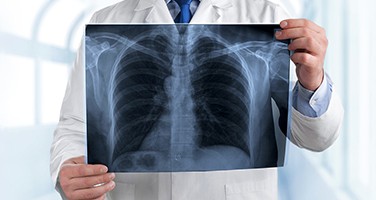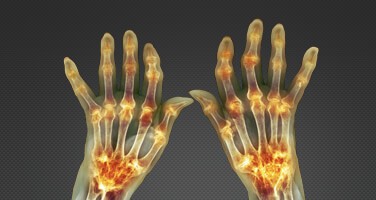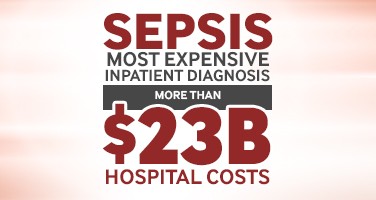Webinars

See our full list of complimentary point-of-care testing webinars.
Receive continuing-education credit when you join these webinars.
Register for Upcoming P.A.C.E.-Accredited Webinars
Receive continuing-education credit when you join these webinars.

Taking a Systematic Approach to Driving Diabetic Behavior Change
Join Abbott and Dr. Chad Malone to learn how an innovative care model can help achieve better adherence, better personalized medicine, and ultimately better outcomes for patients with diabetes through use of a systematic approach to supporting patients’ behavior change efforts.
Watch Recent P.A.C.E.-Accredited Webinars
Receive continuing-education credit when you watch these webinars.

How Culture Media Can Deliver Value to Your Lab
Learn how to incorporate Thermo Scientific™ microbiology prepared media into your workflow by reviewing common procedures and policies for adopting new media and impact on your processes, ordering, delivery, and media storage and handling.

Impact of Rapid Molecular Panel-Based Testing for Urinary Tract Infections
Learn about the latest clinical, economic, and laboratory data on the impact of molecular, panel-based testing for urinary tract infections.

The Key to Successful Antimicrobial Stewardship: Interdisciplinary Teams
Learn how the use of antimicrobial susceptibility platforms that include novel drugs and drugs of last resort may lead to more effective treatment decisions while reducing length of stay and improving patient outcomes.

Procalcitonin Aided Antibiotic Stewardship: The New Paradigm
Learn about the pathophysiology and kinetics of PCT during sepsis and infection and PCT-aided antibiotic stewardship.

Mitigating the Risk of Bacterial Contamination of Platelets
Learn about the threat that bacterial contamination of platelets poses to patient safety.

Genetic Disease Testing in the Modern Lab
Learn how to use capillary electrophoresis to characterize repetitive DNA or copy number changes to diagnose and screen for genetic disorders.
Watch Archived Webinars
Continuing-education credit is no longer available for these webinars.

Antibiotic Stewardship: Diagnosing and Treating Respiratory Infections
Learn how to more accurately diagnose acute respiratory infections and provide more appropriate antibiotic and antiviral treatment.

Tissue Quality for Molecular Techniques
Learn about the requirements for high-quality specimens in the context of molecular methods.

Best Practices Review of Assays for the Diagnosis of C. difficile
Learn about the recently updated ASM C. difficile infection guidelines as well as IDSA guidelines and other clinical evidence that describes the analytical and clinical utility of diagnostic tests and protocols for C. difficile.

The New IDSA Influenza Guidelines and Their Impact on Rapid Testing
Learn about the new IDSA influenza guidelines, the benefits of rapid molecular tests, and how to choose and switch to molecular tests.

Diagnostics for Group B Streptococcus
Learn about new screening methods for Group B Streptococcus in prenatal patients.

What You’re Missing in Your Respiratory Pathogen Detection
Learn how real-time PCR can be used to detect multiple pathogens simultaneously.

Urine Drug Testing and Its Impact on the Opioid Crisis
Learn about screening and monitoring patients who take prescription opioids.

Improving Clinical Management of UTIs
Learn how the current process for diagnosing urinary tract infections results in a heavy clinical laboratory workload and the correlation between rising antibiotic resistance and inappropriate antibiotic treatment.

The Etiology of Community-Acquired Pneumonia
Learn about the organisms thought to cause community-acquired pneumonia (CAP), the role of normal respiratory flora as etiologic agents of CAP, and guidelines for empiric therapies.

Implementing NGS in a Clinical Diagnostics Lab
Learn how adding next-generation sequencing capabilities to their molecular diagnostics lab helped a large healthcare network reduce costs and turn-around times.

Biotin May Interfere with Lab Tests
Learn how biotin interferes with certain lab tests, the impact of that interference, and how to mitigate the risk of reporting erroneous test results.

Diagnosing H. pylori Webinar
Learn more about the bacteria, disease state, and guidelines for diagnosing Helicobacter pylori and review the advantages and disadvantages of various testing methodologies.

NGS for Precision Oncology Testing
Learn about the factors to consider when implementing NGS in a clinical pathology lab and review case studies that demonstrate the benefits of determining the genomic profiles of a variety of cancer types.

The Clinical Impact of Critical Microbiology Results
Learn how microbiologists can help steer antibiotic treatment choices that are critical to patient care, including reliable detection of existing and emerging resistance to new drugs and antimicrobials of last resort.

The Impact of Flexible Panel-Based Solutions for Pathogen Detection
Learn how using syndromic panels for pathogen detection can help you increase efficiency and reduce costs in the lab.

Meeting the Standards of Flu Testing
Join Sally Hojvat, PhD, as she discusses the FDA flu test reclassification and how our knowledge of the flu has advanced over the past 100 years.

Microsatellite Instability Testing and Its Role in Colorectal Cancer
Learn about the current state of MSI testing and review performance data from three different testing technologies.

Lean Processes Webinar
Learn about simple ways to improve efficiency and accuracy in the lab using lean principles.

UTI Detection and Antibiotic Stewardship Webinar
Dr. Erin Graf will provide an overview of new approaches to UTI detection and review published studies that compare the new technologies to previous standard methods.

Flu Testing Under New FDA Guidelines Webinar
In this webinar, Gregory J. Berry, PhD, D(ABMM), will discuss diagnostic tests that meet the FDA’s requirements and what can be learned from the most recent flu season.

Urinary Tract Pathogen Detection Webinar
This webinar will present the new real-time PCR solution for detecting urinary tract infection (UTI) pathogens in just five hours with greater specificity, sensitivity, accuracy, and efficiency than current culture-based methods.

Liquid-Based Microbiology Webinar
Learn about the advantages of using liquid-based methods to collect and transport clinical microbiology specimens.

Anti-Heparin Platelet Factor 4 (PF4) Antibodies: A Potentially Catastrophic Occurrence
Heparin-induced thrombocytopenia (HIT) is a potentially dangerous but reversible condition that can put patients at risk and increase the likelihood of patient readmission. This webinar will explain how following a simple test protocol with patients who receive heparin during their hospital stay can help you diagnose or rule out HIT within an hour.

STAT DNA Testing for Molecular Oncology Applications Webinar
Turnaround time remains a major issue in molecular biomarker testing. This webinar will provide a firsthand perspective about how new technologies can help improve turnaround times for virtually any lab.

Community-Acquired Pneumonia Treatment Webinar
Current treatment practices of community-acquired pneumonia (CAP) expose patients to more antimicrobials than necessary. Learn how rapid diagnostic testing can provide earlier treatment with a focused antimicrobial regimen that targets the identified pathogens, substantially reducing exposure of individuals and hospitals to antimicrobial agents.

Clostridium difficile Infection Guideline Updates Webinar
This webinar will review the updated 2017 Clostridium difficile infection (CDI) treatment guidelines and recommendations from the IDSA and the SHEA, demonstrate how those updates apply to patient populations, and identify the role of the microbiology laboratory in preventing CDI.

Barcoding Webinar
The use of barcodes allows laboratories to improve productivity and patient care, and develop better laboratory practices that lead to enhanced workflows and patient outcomes.

Genital Zoster Infections Webinar
HSV and VZV are common causes of cutaneous and mucocutaneous infections and typically distinguished based upon appearance and anatomic location. Improved testing methods allow for correct detection and diagnosis leading to better treatment and patient counseling.

Flu Reclassification Webinar
Understand the reasons behind the FDA’s recent decision to reclassify rapid influenza diagnostic tests and how this may impact your physician office or clinical laboratory in 2018.

Infectious Diseases Webinar
A modern technology and communication system can send the results of diagnostic tests for influenza, RSV, and Strep A to the CDC, state health departments, and healthcare organizations nationwide, providing physicians with accurate and timely information about the status of infectious disease on a community, county or state level.

Women’s Health Webinar
Urogenital infections like bacterial vaginosis, urinary tract infections, and vaginitis impact over one billion women each year. This webinar will help you understand how to keep your costs to a minimum while maximizing the information obtained from each vaginal specimen.

HIV Webinar
Learn about the evolution of HIV screening tests and the updated CDC HIV testing guidelines.

Gluten-Related Disorders Webinar
To optimize patient management, researchers find there is a need to differentiate gluten-related disorders. This webinar will present an update of our current understanding of the three main forms of reactions to wheat and its byproducts.

Sepsis Webinar
Systemic bacterial infections like sepsis and lower respiratory tract infections can be problematic, but biomarkers like procalcitonin can help manage these infections.

Tissue Archiving: Reality, Recommendations and Best Practices
Missing tissue blocks can delay diagnosis and put samples at risk, but a good archive will keep your tissue blocks safe and help you save time.

Vaginitis Webinar
Vaginitis is one of the most common gynecologic disorders seen in primary care. This webinar will provide clinicians with a practical diagnostic approach to the patient presenting to the office with a vaginal discharge.

Oncology Webinar
In clinical oncology, the specimen is precious and demands new, advanced technologies to simultaneously survey hundreds of gene targets, replacing time-consuming and costly single analyte serial testing. Learn how NGS-based molecular testing has revolutionized precision medicine and provides rapid and efficient tumor survey to inform proper treatment planning.

Avoiding CCP False Positives in Rheumatoid Arthritis Diagnosis
Accurate diagnosis of rheumatoid arthritis hinges on physical examination, testing and imaging. Understanding the importance of choosing the proper serological tests is a vital step in ensuring that patients receive the care they need.

Pharmacogenomics by Real-Time PCR
Pharmacogenomics (PGx) research is an increasingly important tool for precision medicine. Learn how it’s being used in the modern lab and how real-time PCR is used to investigate PGx mutations.

Comparing Biomarkers Used in Sepsis Webinar
Determine which marker or group of markers can provide clinicians with effective clinical information both upon presentation and during the course of treatment of the septic patient.

HemoCue Hemoglobin Testing Webinar
Join us to learn how optimal transfusion practices and patient blood management can reduce healthcare costs and improve patient outcomes.

Shiga Toxin: A Public Health Threat
Learn about how STEC is spread, recent outbreaks and threats, and diagnostic options.

Responding to Wheat Disorders
Join us for a webinar on the symptoms, diagnosis and testing of wheat-related disorders.

The Unseen Threat: Diabetes and CRS
Join us for a webinar on the diagnosis and treatment of diabetes and cardiorenal syndrome.

Clostridium difficile Webinar
Learn how Clostridium difficile impacts the public, best practices for diagnosis, and what can be done to prevent it.

Cryptosporidium and Giardia Testing
Learn why these diseases should be tested together, what the effects are, and who’s at risk.

Minutes vs. Days: Rapid Diagnosis of Group A Strep
Join us for a webinar on group A streptococcus and the ways it can be diagnosed.




